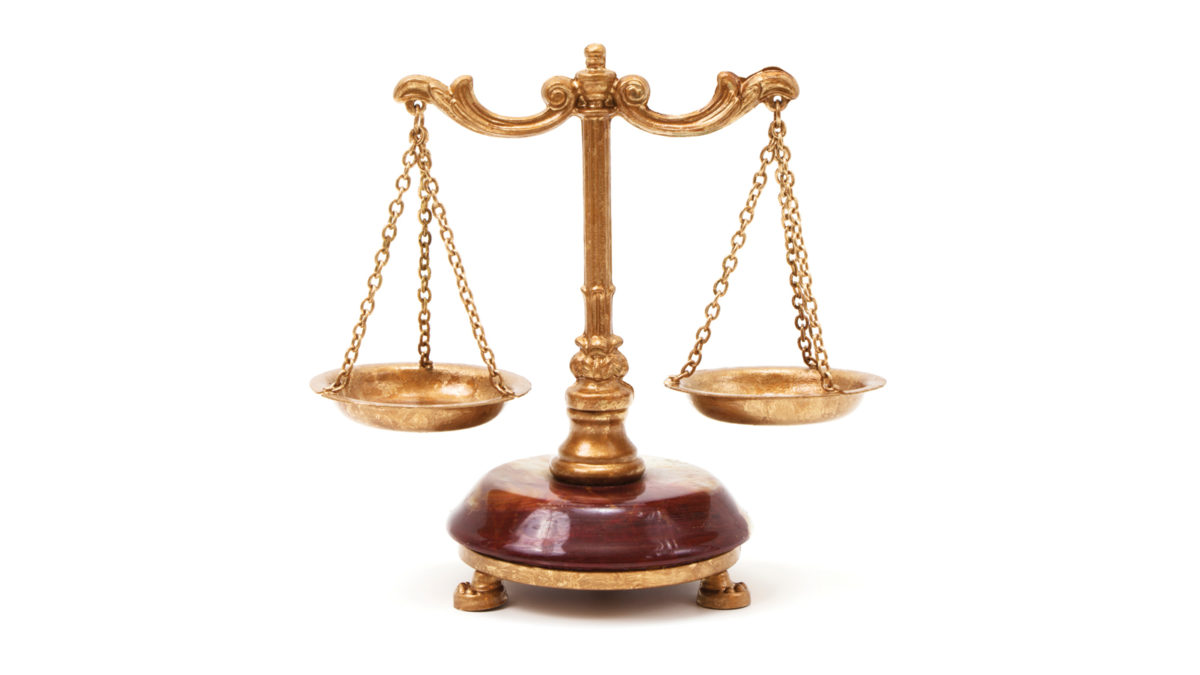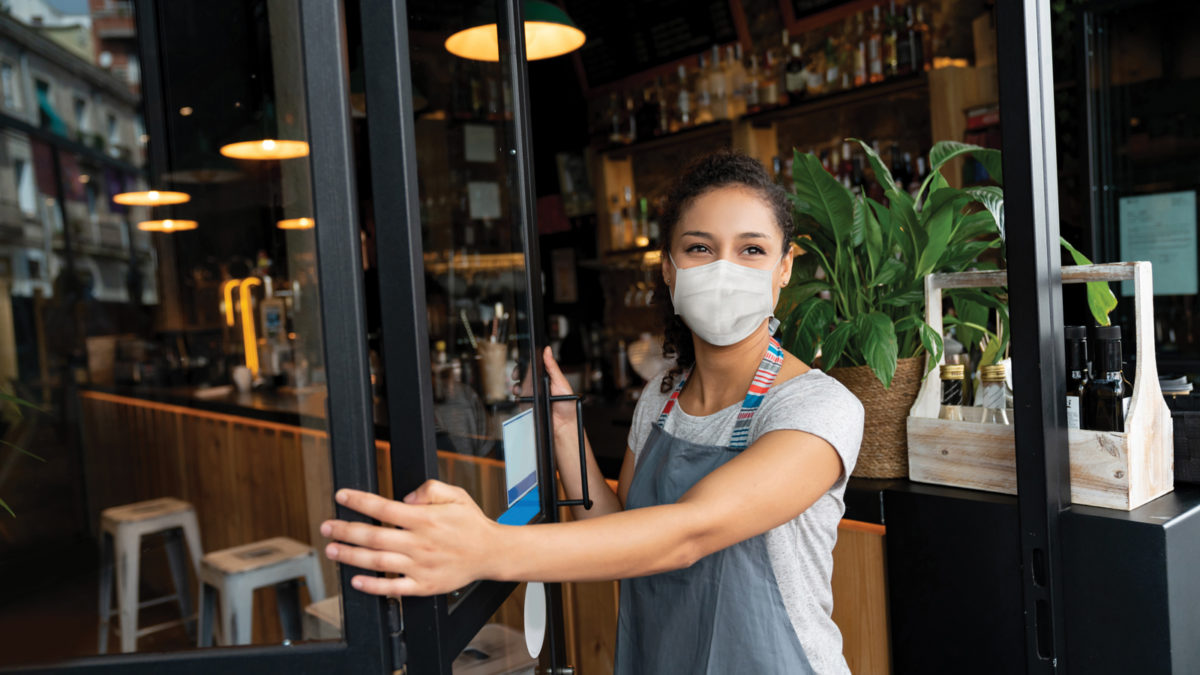
Stepping Up to Provide Pro Bono Legal Services
Lawyers as Leaders
October 2020

In my previous President’s Message, I discussed my Lawyers as Leaders theme for the year and noted that, as a result of the two pandemics we are facing (COVID-19 and racially motivated violence), lawyers are needed, perhaps more than ever, to step up and lead in a variety of ways.1 One of the most accessible and impactful ways lawyers can lead is by providing pro bono legal services for struggling individuals and small businesses.
National Celebration of Pro Bono
This is the month in which we celebrate pro bono. More specifically, during the last week of October each year, we participate in the National Celebration of Pro Bono, which was launched by the ABA Standing Committee on Pro Bono and Public Service in 2009.
This year, the National Celebration of Pro Bono will take place from October 25 to 31. The CBA has encouraged local bar associations and access to justice committees to plan events to provide pro bono legal services, train lawyers to perform such services, and celebrate the attorneys in their communities who donate their time to provide legal services to those who cannot afford a lawyer.
We hope that many of you plan to participate in these local events, most likely virtually. Whether in-person or on-screen, we always enjoy a celebration at the Bar—and especially look forward to celebrating for any reason in 2020.
Unprecedented Attorney Response
The ABA created the National Celebration of Pro Bono during another challenging period for our country—the Great Recession. Not surprisingly, demand for pro bono services spiked during the financial crisis and ensuing economic downturn. Fortunately, attorneys responded in force to meet the additional demand for pro bono services in 2009. Indeed, during that period, pro bono hours reported to the Pro Bono Institute increased more than 13%.2
In 2020, lawyers once again responded with a desire to help from the earliest days of the global pandemic. “Across the country,” it was noted in March, “legal aid organizations and pro bono partners are reporting a massive increase in volunteers looking to help people and businesses in need.”3 The CBA hopes and anticipates that lawyers will continue to step up and lead by providing pro bono legal services in the coming year and beyond as the need for these services continues to rise due to COVID-19 and its crippling effect on the economy.
Demand Runs the Gamut
The pandemic has been challenging for most Coloradans. But for those living in poverty or within marginalized communities, COVID-19’s impact has been and will continue to be especially devastating. First, these individuals are among the most likely to fall ill with the virus, which can have distressing consequences, even for those who recover.4
In addition, Coloradans who have lost or will lose their jobs, or who are fighting to keep their business from shuttering, will face difficulties that stretch far beyond the immediate health consequences. Many of these difficulties will have legal implications. For example, residents with low or no income will need help to avoid evictions and foreclosures. Small businesses will need rent abatement and other assistance to continue operating. Domestic disputes will likely intensify as family members are laid off or continue to work from home, with child support and parenting time orders requiring modifications, domestic violence increasing, and divorces on the rise. Individuals and businesses will need help accessing government benefits. And many others will need lawyers to help them through restructuring and bankruptcy processes, something most couldn’t have envisioned just eight months ago.
Leading the Way
The CBA has remained steadfast in its commitment to pro bono service and access to justice during this time, while also adjusting and adapting to meet the needs of the moment. In addition to updating its statewide Pro Bono Opportunities resource webpage5 with opportunities to help individuals and small businesses in need, Bar leadership and staff worked with the CBA Young Lawyers Division (YLD) to reconstitute the Disaster Legal Services program, which was originally created in the wake of the 2013 floods. The CBA Disaster Legal Services Procedure Manual provides a framework for (1) maintaining the Bar’s preparedness to respond to a disaster, (2) evaluating the need for disaster legal services, (3) formulating an appropriate response, and (4) implementing the response. CBA Access to Justice Director Kathleen Schoen and YLD representatives are following this framework to ensure the CBA is prepared with an appropriate disaster response plan.
COVID-19 is of course a very different type of natural disaster from the floods. And it presents new challenges that did not exist after the floods or during the Great Recession, in part because courts are operating at less than full capacity and in new ways. The CBA recognizes the court’s efforts to continue providing services during this time and has created a resource for staying apprised of changes in court operating procedures.6
Equally challenging, most legal services must be provided remotely at a time when many Americans still lack reliable internet access. According to a 2019 survey, 18% of adults from households earning less than $30,000 a year do not use the internet, either due to lack of access or expertise.7 The CBA is working to address the access issue: it’s had a lead role in urging the House and Senate to allocate funding to Colorado and all other states for adequate and affordable high-speed internet access.8
Nevertheless, many pro bono legal services can be and are being provided remotely and despite modifications in court schedules and procedures. And many of us are looking for opportunities to connect—albeit virtually—to our communities during this turbulent year. While adapting to major changes is never easy, the new normal has created new ways for lawyers to get involved, including from the comfort of their own homes. And the CBA can again play a central role as both demand for pro bono services and attorney response to that demand rise.
CBA Programs and Partnerships
The CBA leads or assists with a variety of programs to make pro bono opportunities available to lawyers and clients. The table above provides links to more information and/or program contacts.
Federal Pro Se Clinic
The CBA runs the Federal Pro Se Clinic9 using funds provided by the US District Court for the District of Colorado. The clinic works closely with volunteer lawyers and staff to provide limited-scope legal assistance to unrepresented civil litigants in federal court.10 It’s also being expanded to include matters in US Bankruptcy Court in anticipation of a continued surge in bankruptcy proceedings. The clinic helps pro se litigants prepare complaints and responsive pleadings, assists with other common case documents, answers procedural questions, and explains legal concepts such as jurisdiction, venue, and service of process. In its first two years, the clinic has facilitated more than 60 volunteer attorneys to assist more than 450 pro se litigants during more than 1,150 appointments. The clinic is currently holding these appointments remotely.
Colorado Lawyers for Colorado Veterans
The CBA Military and Veterans Affairs Section manages this successful pro bono program where veterans get information on topics such as veterans resources, benefits, taxes, housing, and family law. Colorado Lawyers for Colorado Veterans (CLCV)11 has recruited 280 volunteer lawyers to provide pro bono legal services to Colorado veterans, and these volunteers have so far handled 250 pro bono veteran cases.
CBA Intellectual Property Pro Bono Patent Program
In partnership with MiCasa Resource Center and in conjunction with the US Patent and Trademark Office (USPTO), the CBA “ProBoPat” program12 connects low-income Colorado inventors with Colorado patent professionals for patent preparation and prosecution of legal services on a pro bono or significantly reduced-fee basis.
CBA Appellate Pro Bono Program
The CBA Litigation Section’s Appellate Practice Subcommittee facilitates both a full-referral program and a clinic for pro se litigants in the Colorado Supreme Court and the Court of Appeals.13 In the full-referral program, individuals whose income is below 125% of federal poverty guidelines can apply to obtain a lawyer to assist at no cost with their appeal. As with all CBA pro bono programs, malpractice insurance is provided for the representation. And if transcripts are needed, the program has funds available to help defray the cost. In the clinic program, volunteer lawyers provide limited-scope advice. Both programs offer a mentoring component where attorneys who are new to appeals or to a particular subject area can be matched with more experienced attorneys.
OARC Assistance Program
The CBA Assistance Program for Office of Attorney Regulation Counsel (OARC) Disciplinary Matters is a pilot program that makes referrals of need-based legal assistance to respondent lawyers in disciplinary matters before the OARC. Volunteer members of the CBA Ethics Committee can enter into independent attorney-client relationships with respondent attorneys facing discipline and provide limited-scope representation for free. Respondent lawyers seeking assistance through the program must submit an application, including a financial affidavit, and agree to pay any costs associated with the case. The program’s screening committee decides which cases are appropriate for the program, relying in part on the financial affidavit, but also factors such as the number of current cases in the program and the number of volunteer attorneys available to provide assistance. Like the Appellate Pro Bono Clinic, this program has a mentoring component. The OARC Assistance Program does not qualify as pro bono under the Rules of Professional Conduct because respondent lawyers may not meet the poverty-level threshold, and it is not affiliated in any respect with the OARC. To volunteer, members must join the CBA Ethics Committee.
CBA Section-Driven Initiatives and Collaborations
In addition to these established pro bono programs, CBA sections have been devising practice-specific ways to assist people during this time. The Real Estate Section is working with Colorado Legal Services to develop an eviction defense project; the Family Law Section and Alternative Dispute Resolution Sections are discussing with the Supreme Court Administrators Office and Child Support Enforcement how to help parties mediate and resolve domestic disputes; and the CBA YLD is working with the Succession to Service program (described below) as well as presenting to pro bono coordinators across the state and the Local Access to Justice Support Committee. In addition, the Modern Law Practice Initiative continues to provide training on unbundled legal services. To be involved with efforts like these, please join a section. The CBA has 30 of them,14 and they are the primary vehicle for member engagement with the Bar.
Succession to Service
New this year, the Colorado Succession to Service program15 is a collaborative project among the CBA, Colorado Attorney Mentoring Program (CAMP), Metro Volunteer Lawyers (MVL), and Colorado Access to Justice Commission. The program’s goal is to establish a structured, statewide program for Colorado’s experienced lawyers and judges to partner with nonprofit organizations, courts, and other public interest entities to influence the continuing need for equal access to justice. Succession to Service is a community of lawyers looking to make a difference. The platform makes it easy for lawyers to find and volunteer for projects they care about. Using their specialized skills and experience to perform engaging pro bono work, participating lawyers become active members of the legal community and help Colorado’s courts and service providers expand and enhance the pro bono legal services they offer.
Colorado COVID Small Business Legal Program
Also new in 2020, and in direct response to the global pandemic, lawyers across the state can volunteer to assist struggling small businesses, particularly minority- and women-owned businesses, through the Colorado COVID Small Business Legal Program (CCSBLP).16 CCSBLP is cosponsored by the Colorado Attorney General’s office and the Colorado Lawyers Committee, among others, and is designed to provide legal assistance to small businesses that cannot afford to hire a lawyer and are being hit the hardest by COVID-19. The virus’s impact on small businesses, which account for half of Colorado’s jobs, is catastrophic. Volunteer attorneys in all Colorado communities can offer lifelines to yoga instructors, coffee and sandwich shops, childcare providers, alpaca farmers, and steel fabricators, to name a few of the businesses this program already has assisted.
Federal Bankruptcy Pro Se Clinic
Given the success of the Federal Pro Se Clinic, and in anticipation of a continued surge in bankruptcy proceedings, the US District Court and the Faculty of Federal Advocates are considering whether to provide additional funding for a similar clinic to assist pro se litigants in US bankruptcy court in Colorado.
Virtual Pro Se Clinics
The Virtual Pro Se Clinic (VPC)17 is another program that was developed to address the growing trend of pro se litigants in our courts. The VPC provides free monthly legal clinics at public libraries in 26 counties across Colorado. Long before the pandemic forced us all to use technology to provide pro bono legal services, the VPC was using videoconferencing and screen-sharing capabilities to help self-represented litigants better understand court procedures and processes. Each clinic patron is given a set time period, as determined by the library at the beginning of each VPC clinic, to talk to a volunteer attorney.
POWER Act Programming
The POWER Act is the federal Pro Bono Work to Empower and Represent Act of 2018.18 Pursuant to the Act’s directives, every other year all US district courts must organize, sponsor, and host a pro bono and volunteer organizing effort regarding domestic violence prevention and victim assistance oriented toward the general public. In the intervening years, district courts with Native American tribal organizations based in the state (including Colorado) must hold a program oriented toward generating interest in pro bono and volunteer assistance for Native American tribes and their domestic violence service providers. The CBA is working with the Faculty of Federal Advocates to support and promote these POWER Act programs.19
A Conduit to Additional Opportunities
The CBA serves primarily as a convener and a connector for pro bono work and access to justice. Thus, the Bar also facilitates connections between its members and the many organizations that provide opportunities to Colorado lawyers to furnish legal services to individuals and businesses in need via the CBA’s website resource listing pro bono opportunities.20
Like some of the CBA programs described above, these community organizations frequently provide training and support, so that even newer lawyers and lawyers who practice on their own or in-house feel comfortable volunteering and working on matters outside their primary area of specialization. Lawyers in my office, for example, work closely with the Rocky Mountain Children’s Law Center and the Rocky Mountain Immigrant Advocacy Network. These organizations and many others rely on volunteer attorneys who are willing to donate time to support their missions. Like many law firms, we also have taken on new projects and cases that address a variety of racial justice issues. For example, we have helped more than 100 minority-owned small businesses navigate the difficult legal and economic landscape of the post-COVID world, taken on several civil rights cases on behalf of individuals who recently experienced violence at the hands of law enforcement, and collaborated with organizations like the Innocence Project and others to tackle criminal justice reform. These efforts have been national in scope, but here in Colorado, the local chapter of the National Lawyers Guild supports movements and activism for social and legal justice, including providing pro bono opportunities to lawyers who want to help effect change.
Many lawyers in and around Denver (including Adams, Arapahoe, Broomfield, Denver, Douglas, Elbert, and Jefferson counties) work with MVL,21 which relies on volunteer attorneys to help low-income applicants with probate, family law, bankruptcy, landlord tenant, housing, social security, and mediation services. Additional statewide organizations include ACLU of Colorado and Disability Law Colorado. MVL and many of the other organizations mentioned here are included on the webpage the CBA maintains for members who are interested in pro bono volunteer opportunities.
The CBA also maintains a COVID-19 resources page22 that links to the pro bono opportunities webpage and provides updates for attorneys who may be providing pro bono legal services, such as information about the Governor’s Executive Order permitting remote notarization, telework resources provided by CBA’s Modern Law Practice Initiative, and OSHA’s guidelines for returning to work safely when telework is not practicable. In recognition of the fact that not all Colorado attorneys are in a position to provide pro bono services and some are themselves struggling to get by, the COVID-19 resources page also provides information about the Waterman Fund, a charitable trust that provides financial assistance on a confidential basis to elderly, infirm, or incapacitated members of the Colorado bar who have practiced law in Colorado for at least 10 years.
In addition, the CBA has a “For the Public” webpage23 that provides guidance and direction to members of the public, including links to Colorado Legal Services and Pro Bono Coordinators. The site describes various clinics and programs that are offered throughout the state to assist members of the public; provides contact details for the Colorado Courts Self-Help Centers and “Sherlocks”; links to the Colorado Judicial Branch website for court-location information; and connects members of the public with the CBA’s free Licensed Lawyer referral service.
Additional pro bono opportunities can be found on the Colorado Legal Services and Colorado Lawyers Committee websites.24
Call to Action
The CBA remains committed to making a difference in the lives of our low-income Coloradans, as well as in the broader communities in which we live. But at its foundation, pro bono work is a professional responsibility and an individual ethical commitment of each lawyer. As one of our legal community’s most ardent advocates for pro bono legal services, Senior Colorado Court of Appeals Judge Daniel Taubman, recently wrote,
The [Colorado Rules of Professional Conduct] have a dual focus: to encourage lawyers to provide voluntary, or pro bono, service to poor people or organizations that assist poor people (as well as encouraging other types of volunteer service) and to urge lawyers to financially contribute to organizations that provide legal services to persons of limited means.25
I urge all lawyers who are not themselves in need of assistance to make a personal pledge to step up and help. Attorneys are in a unique position to help others by putting their legal training and skills to good use. And so many of us entered this profession to help people. Now is the moment.
So donate pro bono legal services to a struggling individual or small business. Join the list of law firms, solo practitioners, in-house counsel, and government groups that have committed to the annual goal of 50 hours of pro bono legal services by their Colorado-licensed attorneys established by the Colorado Supreme Court Pro Bono Legal Service Commitment and Recognition Program.26 And tell us about the pro bono work you’re doing.
If you do, then during the National Celebration of Pro Bono, we can celebrate you.
The CBA wants to showcase attorneys who are providing assistance free of charge to clients in need. Please email your stories and photos (including proposed captions) to jespinoza@cobar.org for inclusion in Colorado Lawyer Bar News.

Notes
1. Brown, “Lawyers as Leaders: Leading through Unusual Times,” 49 Colo. Law. 4 (Aug./Sept. 2020).
2. Pro Bono Institute, “Law Firm Pro Bono Challenge Reports: An Anthology (1995–2014)” at 2 (2015). The Pro Bono Institute provides research, consulting services, analysis, publications, and training to a broad range of legal audiences.
3. Vogt, “Pro Bono Puzzle: Attys Try To Navigate Helping From Home,” Law360 (Mar. 29, 2020), https://www.law360.com/articles/1257853/pro-bono-puzzle-attys-try-to-navigate-helping-from-home.
4. O’Donnell and Pineda, “Long-lasting COVID symptoms from lungs to limbs linger in coronavirus ‘long haulers,’”USA Today (July 27, 2020), https://www.usatoday.com/in-depth/news/health/2020/07/25/covid-19-long-haulers-fight-months-lingering-symptoms/5420534002.
5. Pro Bono and Volunteer Opportunities, https://www.cobar.org/probono.
6. COVID-19 Resources, http://www.cobar.org/For-Members/COVID-19-Resources#8835191-courts-information.
7. Anderson et al., “10% of Americans don’t use the internet. Who are they?” Pew Research Center (Apr. 22, 2019), https://www.pewresearch.org/fact-tank/2019/04/22/some-americans-dont-use-the-internet-who-are-they.
8. Vaught, “Saving the Practice of Law in Rural America: CBA Heads to Congress for Broadband Funding,” 48 Colo. Law. 4 (Dec. 2019).
9. https://www.cobar.org/fpsc.
10. To volunteer, contact CBA Project Attorney Leslie Kelly at lkelly@cobar.org.
11. https://www.cobar.org/clcv.
12. http://www.ipsectioncolorado.org/probopat.
13. Visit http://www.cobar.org/Appellate-Pro-Bono to learn more about volunteering for this program.
14. CBA Sections, https://www.cobar.org/For-Members/CBA-Sections.
15. To view available pro bono opportunities, sign up to volunteer, or apply to be a legal nonprofit partner, visit successiontoservice.org.
16. To volunteer, visit www.coloradocovidrelief.org/volunteer-to-help.
17. To volunteer, contact Ric Morgan at morgan@hayday.org.
18. Pub. L. No. 115-237.
19. To volunteer, contact Edward Butler, legal officer, at edward_butler@cod.uscourts.gov or (303) 335-2043.
20. Statewide Pro Bono Opportunities, https://www.cobar.org/For-Members/Pro-Bono-Opportunities/Statewide-Pro-Bono-opportunities.
21. https://www.denbar.org/mvl/volunteer-with-mvl..
22. http://www.cobar.org/For-Members/COVID-19-Resources..
23. https://www.cobar.org/For-the-Public.
24. See https://www.coloradolegalservices.org/node/6/support-colorado-attorneys-working-pro-bono-cases/volunteering and https://coloradolawyerscommittee.org/projects-task-forces.
25. Taubman, “Has the Time Come to Revise Our Pro Bono Rules?” 97 Denver L. Rev. 395 (2020).
26. https://www.courts.state.co.us/Courts/Supreme_Court/Pro_Bono.cfm..
The CBA has remained steadfast in its commitment to pro bono service and access to justice during this time, while also adjusting and adapting to meet the needs of the moment.
| Program | Information/ContactO |
| Appellate Pro Bono Program | www.cobar.org/Appellate-Pro-Bono |
| Colorado COVID Small Business Legal Program | www.coloradocovidrelief.org/volunteer-to-help |
| Colorado Lawyers for Colorado Veterans | www.cobar.org/clcv |
| Federal Pro Se Clinic | www.cobar.org/fpsc; Leslie Kelly |
| POWER Act Programming | Edward Butler, edward_butler@cod.uscourts.gov |
| ProBoPat Program | www.ipsectioncolorado.org/probopat |
| Succession to Service | successiontoservice.org |
| Virtual Pro Se Clinics | Ric Morgan, morgan@hayday.org |


